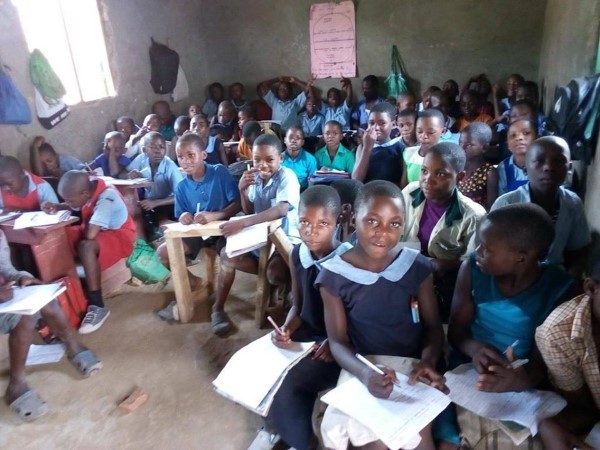
The world is rife with challenges unique to 2020, though there is no shortage of problems that predate the Year of the Pandemic. Humanitarian need, for instance, has long stood as a gaping hole in still-developing, poverty-challenged countries, where food and basics are often in short supply. The use of social networking and other internet resources has become more of a lifeline than ever for charities and humanitarian organizations that rely on donations. Simultaneously, though, criminal abuses of the internet continue to increase in number. In America alone, complaints of internet-based fraud rose about a half a million between 2015 and 2019, totaling nearly 1,700,000 last year.
Until fairly recently, I had remained blissfully unaware of the potential difficulties that face Ugandan natives attempting to legitimately serve the vast population of orphans and other minor-age children in need. My wife, Brenda, first took notice of Hope Orphanage and Outreach Centre on Facebook in 2017. She’d mentioned being touched by the many photos of the children at the facility, located in Kasese, Uganda, and had felt moved to make donations from time to time, as finances would allow. In time, she and I would directly encounter an attempt by a scammer to intercept a donation we sent to Hope Orphanage.
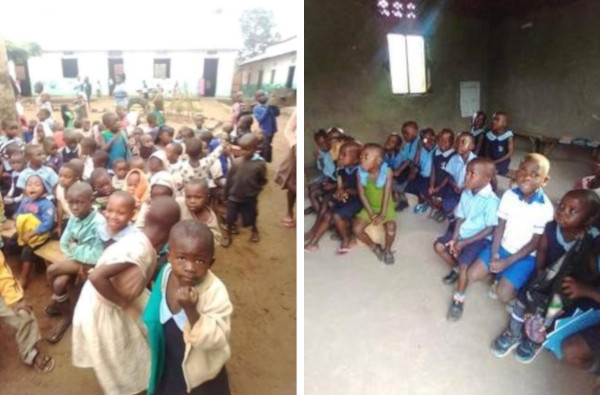
Over time, Brenda began chatting via Facebook Messenger with the orphanage’s founder and director, a Ugandan man in his early 30s named Mbaju Phillmon. A friendly and industrious fellow, Phillmon was forthcoming about the Christian basis of his work and frank about the ongoing need for financial support. Being unaccustomed to individual, first-person appeals for assistance, these initially seemed to me a bit too forward and potentially suspicious—especially in these times when scams like the infamous “Nigerian Prince” phishing emails and fake online charities are commonly seen. However, Brenda had carefully vetted the orphanage early on. Upon request, she was given two American references who spoke with her and affirmed the orphanage’s legitimacy. For good measure, Phillmon also sent a photo of the facility’s license.
Later, after having an enlightening Zoom conversation with an American priest living in Uganda, I realized that what I had originally interpreted as an aggressive request for assistance was in fact a typical cultural response to significant ongoing need in a country where there just isn’t enough to go around. Another way of looking at it: Ask, and it shall be given. Faith is a major factor for Phillmon, who asks, waits, believes and receives. Then, with the input of a nine-member board, he carefully allocates new funds to meet the orphanage’s most immediate needs, all while honoring donors’ specific allocation requests.
A website and a more professionally operated marketing campaign would perhaps be more effective and more credible to American eyes, but such luxuries presently remain beyond reach. Phillmon, a smart, college-educated man with a young family of his own, was simply doing the best he could with limited resources. In 2018 an American supporter created a Go Fund Me campaign that is currently active. Over $15,000 has been raised since June of 2018, though even with the extremely low cost of living in Uganda, that amount falls well short of the $1,500 needed per month for food, supplies and staff payroll. Using every resource at his disposal, Phillmon tirelessly communicates with supporters and potential supporters to make up the difference.
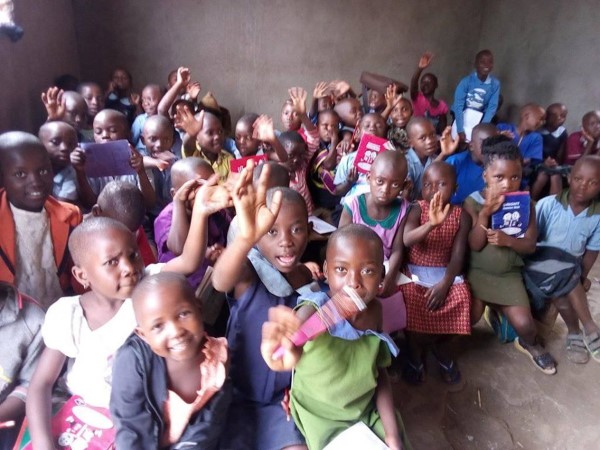
The orphanage, anchored by a school for children ages 3 through 13, owns the property it occupies, thanks to donors. Colorful block buildings provide serviceable classrooms, and children are daily served three meals consisting of simple but nutritious staples. Available housing, however, can currently accommodate only about half of the 491 kids who attend school there. Additionally, a smaller campus in a nearby village accommodates 250 children, totaling almost 750. Phillmon wants to accommodate still more as funds become available. Certainly, there is no shortage of children in Kasese District who lack the education and care that the facility has the potential to provide.
Though millions in Uganda have long been living from a necessary mindset of day-to-day survival, Phillmon’s vision for Hope Orphanage boldly includes plans for expansion, again a reflection of his deep faith for provision. Well aware of the complex cultural issues that perpetuate poverty and lack of opportunity, Phillmon is seeking funds to build additional classrooms and also hopes to eventually launch a vocational school for those under his care who will otherwise age out of the orphanage after completing the American equivalent of seventh grade. Currently, one of Phillmon’s most pressing expansion goals is to build enough on-campus housing so that children can sleep onsite instead of at the homes of family members. Leaving the premises incurs risk, including road accidents or even abductions.
So, wait a minute—if these kids have family, even extended family, then why are they in the care of an orphanage? Hope Orphanage takes in full orphans, half-orphans (children with one living parent), street kids, disabled kids . . . essentially, any needy child. More than 80 percent of impoverished Ugandan children fall under the heading of “social orphans,” having family members but lacking basic support. And the number of these is staggering.
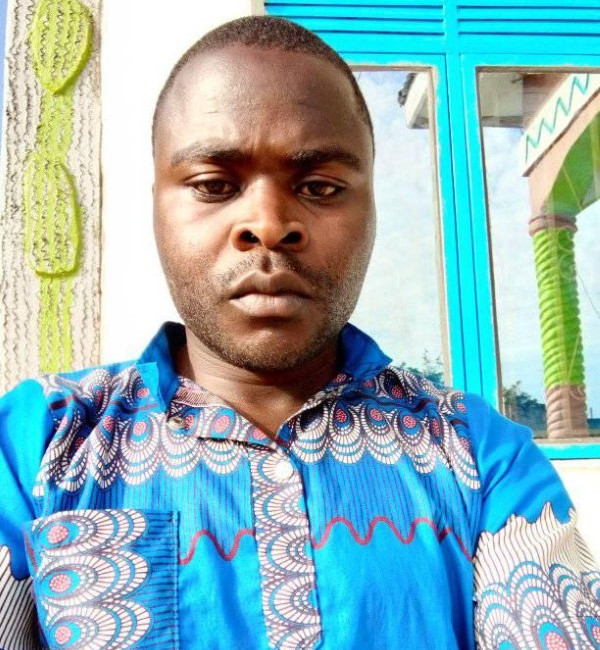
Of Uganda’s roughly 46 million residents, nearly one-half are under the age of 15. The average birth rate is between five and six children to each Ugandan female, many of whom begin motherhood in their mid-to-late teens. This explosion of births, combined with poverty and skyrocketing numbers of unemployed or underemployed Ugandans, leaves millions of children who cannot be properly cared for. And that’s if they even have a family; many children lose parents to floods, violent conflict in the nearby Congo region, and diseases such as AIDS, cholera and ebola.
Mbaju Phillmon is one of many individuals laboring to provide a solution to what seems an unsolvable problem. Compounding the challenges is the work of scammers who exploit existing orphanages, even borrowing their good names to create homes where children suffer mistreatment while donations go into the pockets of scam operators. Phillmon has been spared the worst of such exploitation, but signs of potential scammer activity started showing up when his Facebook page began disappearing from view. It’s happened four times, two of those since the beginning of 2020.
The shutdowns not only robbed Phillmon of crucial access to supporters but required the painstaking process of starting over with only an older model cellphone. Phillmon never received an email from Facebook regarding the shutdowns, so it’s likely that they were caused by someone with bad intent, though clues remain elusive. Clear evidence of phishing did show up, though, when the orphanage director’s email account was hacked. My wife and I found this out firsthand.
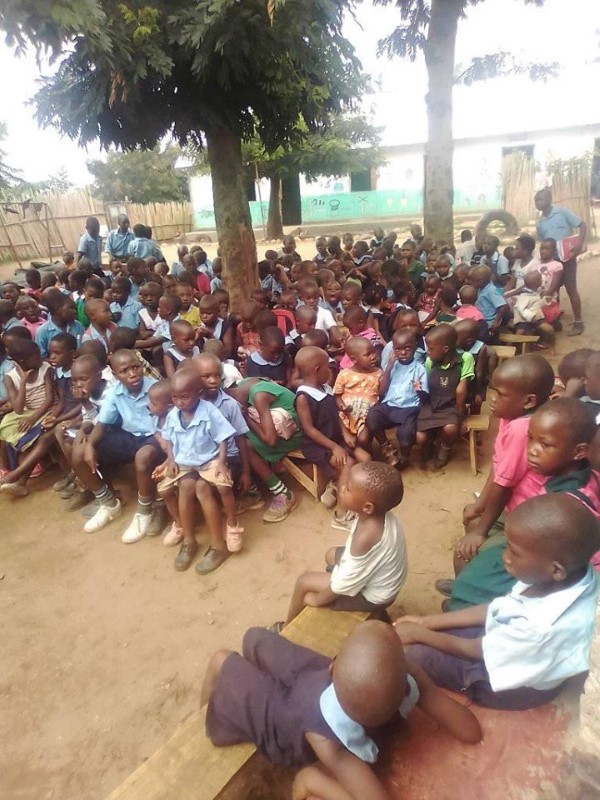
The day after we sent a sizeable contribution via Western Union (to ensure speedy and direct receipt), Brenda got an email from Phillmon’s address. The sender—using language that sounded exactly like Mbaju’s previous communications—said that he couldn’t claim the donation due to an expired ID card, and asked for the donation to be resent to a different person, whose name he provided. Brenda did as requested and then texted Mbaju, who expressed confusion and explained he hadn’t emailed her, nor had he made any such request. We quickly figured out that a scammer had been tracking our communications with Mbaju, and we alerted him to the misuse of his email account. The very next day, a friend of my wife who also donates to Hope Orphanage was approached (unsuccessfully) by a scammer impersonating Mbaju, so we know our experience was not an isolated incident.
Thankfully, our misdirected donation was stopped in time and redirected to Mbaju as intended, but we learned to be more vigilant about potential deception. A recent initiative on the part of the Ugandan government has resulted in the shutdown of many bogus child-care operations in the country, but there are still cyber-criminals lurking who knows where, and they know it’s lucrative to use needy and innocent children as bait. Should you be moved to make a contribution, I can personally vouch for the sincerity and integrity behind Hope Orphanage, as well as its worthy work and legitimate, immediate needs. To donate, click here or search for “The Children Need Your Help – Uganda” on the home page of gofundme.com.
Meanwhile, on behalf of the hundreds of children at Hope Orphanage, Mbaju asks, waits and believes. Emailing answers to questions asked for this story, Mbaju sent a personal message to those reading: “Love from the orphanage,” he says, concluding an email typed through his aging cellphone. “Our motto is ‘God is in control.’”














We made this orphanage our church teen group mission in 2010 after a group of missionaries supported by our church returned from a trip with film coverage of the property where the orphanage in Uganda is located & a brick maker that was donated in order for them to build structures for the children to live & attend classes in. The device made one brick at a time. You can look today & see the incredible amount of progress due to the tireless efforts that the director & these orphanage staff. All the while dealing with their own family, illness, very little IF ANY compensation for all their work. And all around them an enormous amount of hardships on a daily basis, enough to make anyone give up. Death, corruption, injustice & starvation all around them so they focus on their faith in God which strengthens & heals. Do your research and you will see. Those that do not walk in the Spirit of God sometimes just won’t get it (faith). We need MORE advocates of the world. EVERYONE should take the time to advocate for the Children, widows, elderly, lost, homeless, mentally, spiritually & physically ill. If everyone devoted the amount of effort & dedication that Mbaju & the staff at Hope Orpanage put into feeding, clothing, educating & caring for these babies, children & future adults then we could move mountains.
Comment July 11, 2020 @ 6:07 pm